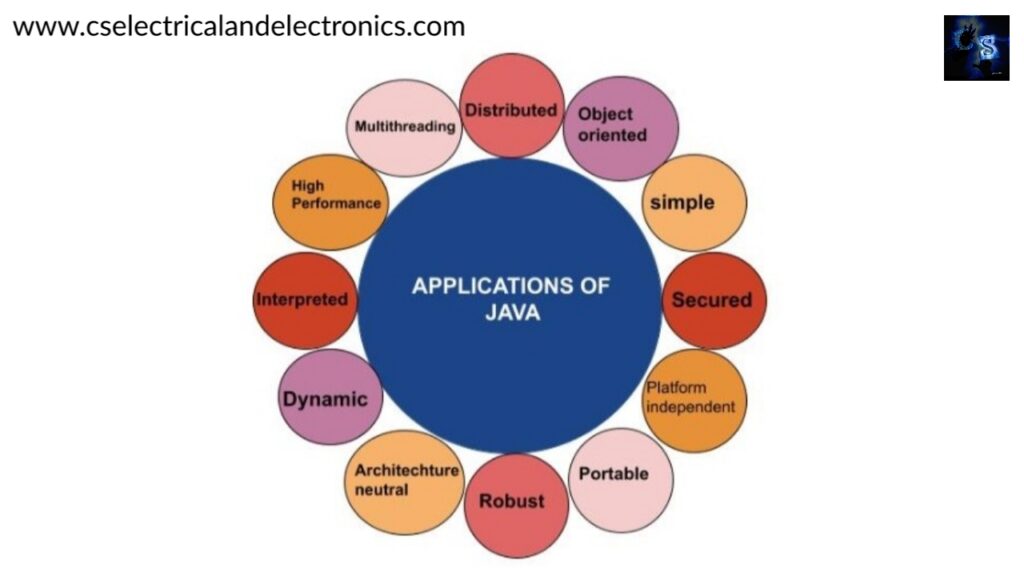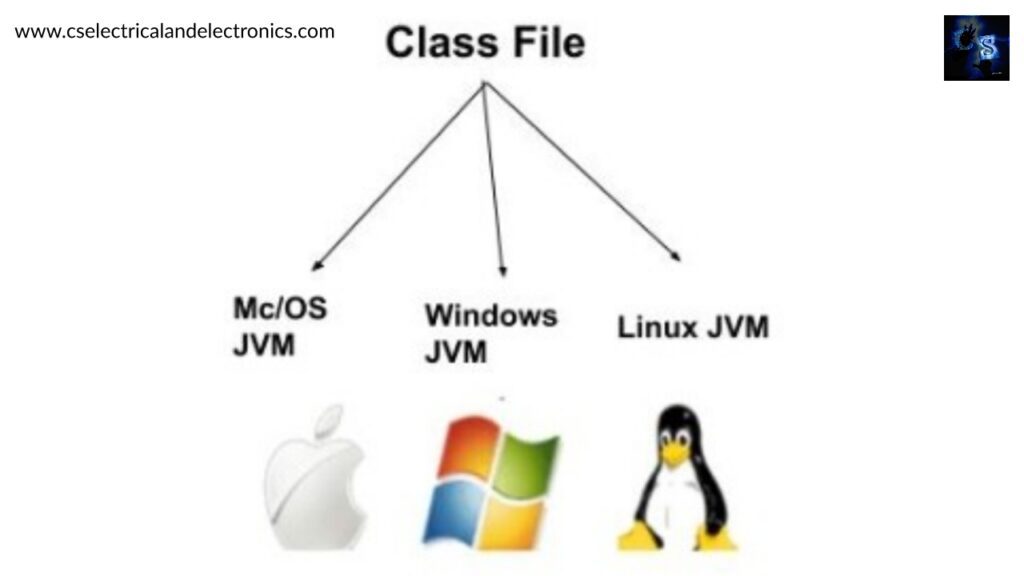Top 10+ Features Of Java Programming Language You Must Know
Hello guys, welcome back to my blog. In this article, I will discuss the top 10+ features of the java programming language you must know, what makes java so popular, java programming features, etc.
If you have any doubts related to electrical, electronics, and computer science, then ask question. You can also catch me @ Instagram – Chetan Shidling.
Also, read:
- Difference Between Java And Cpp Programming Languages, Applications
- What is JAVA, Applications of JAVA, History, Code On Java
- What Is ANN Controller, Artificial Neural Network (ANN) In MATLAB
Features Of Java Programming Language
The main objective of the JAVA programming language was to make it a portable, secure and simple programming language. Except this, there are several excellent features that play a vital role in the popularity of this language. Features of Java can also be called Java buzzwords.
Important features of the Java language are listed below,
- Simple
- Object-oriented
- Dynamic
- Secured
- Portable
- Robust
- Interpreted
- Distributed
- Platform independent
- Architecutre neutral
- High performance
- Multithreaded

Simple
Java is very easy to learn, and its syntax is too simple, easy, and clean to understand by beginners easily. According to Sun Microsystem, Java language is a very simple programming language because of below reasons,
- The syntax of Java is based on C++ (so it is very for programmers who know C++).
- In Java they have removed many complicated and rarely-used features/parameters, such as, operator overloading, explicit pointers, etc.
- We don’t have to remove unreferenced objects in java because there is an Automatic Garbage Collection in Java.
Object-oriented language:
Java is one of the object-oriented programming languages. Everything in Java is termed as an object.
Object-oriented is nothing but, process of organizing our software with a combination of different types of objects that incorporate both data and behavior.
Object-oriented programming is the methodology that simplifies software development and maintains by implementing some rules.
Here are some basic concepts of OOPs are as follows:
- Object
- Class
- Inheritance
- Abstraction
- Polymorphism
- Encapsulation
Platform Independent

Java is platform-independent since it is different from other languages like C and C++, etc. These languages are compiled into platform-specific machines, whereas Java is a write once, run anywhere language i.e WORA language. By using the platform we can run the programs.
Mainly there are two types of platforms:
- software-based (Java provides this platform.)
- Hardware-based.
Java’s platform is completely different compared to other platforms because it is a software-based platform that runs on top of other hardware-based platforms. It is having two components:
- Runtime Environment
- API(Application Programming Interface)
You can execute Java code on multiple platforms, such as Windows, Mac/OS, Linux, Sun Solaris, etc. Java code will be compiled by the compiler and it will be converted into bytecode.
Bytecode is platform-independent since you can take this code and run it on multiple platforms, which is nothing but Write Once and Run Anywhere (WORA).
Secured
Java is a highly secured language among all other programming languages, because for two reasons:
- All the Java Programs run within the virtual machine sandbox.
- No explicit pointer.
By using Java, we can develop virus-free systems.
- Classloader: Classloader in Java is the part of Java Runtime Environment (JRE), which can be used to load Java classes into the Java Virtual Machine dynamically. It adds security by separating the package for the classes of the local file system from imported network sources.
- Bytecode Verifier: It checks all the fragments of code for illegal code which can violate access rights to objects.
- Security Manager: This determines the resources which, class can access such as writing, reading and to the local disk.
Java provides these security systems default. Some security can also be given by an application developer externally through JAAS, SSL, Cryptography, etc.
Robust
Robust means it is strong. So Java is robust because of the following reasons:
- It uses robust memory management.
- There are no pointers that avoid security problems.
- Java has automatic garbage collection that runs on the Java Virtual Machine to get rid of objects that are not being used by a Java application.
- There are exception handling as well as the type checking mechanism in Java. Because of these points, Java is robust.
Architecture-neutral
Java is architecture-neutral because the size of primitive data types is fixed in java.
In the C programming language, the size of the data type depends upon the architecture and it varies. For example, int data type occupies 2 bytes of memory for 32-bit architecture and 4 bytes of memory for 64-bit architecture. But in java, it occupies 4 bytes of memory irrespective of 32 and 64-bit architectures.
Portable
Java is portable since it allows you to carry the Java bytecode to any other platform, and you can run that bytecode irrespective of OS. It doesn’t require any implementation.
High-performance
Java is faster compared to other interpreted programming languages because Java bytecode is more “close” to native code. It is still a little bit slower than a compiler-based language (e.g., C++). Java is an interpreted language, because of this it is slower than compiler-based languages, e.g., C, C++, etc.
Distributed
Java is a distributed language because it allows users to create distributed applications in Java. EJB and RMI are used to create distributed applications. This feature of Java helps us to access files by calling the methods from any other machine on the internet.
Multi-threaded
A thread is like a separate program, which will be executing concurrently. We can write Java programs that deal with many tasks at the same time by defining multiple threads. The main advantage of multi-threading is that it will not occupy memory for each and every thread. It shares the common memory area. Threads are important for web applications and multimedia, etc.
Dynamic
Java is a dynamic language. It supports the dynamic loading of classes, which means classes are loaded on demand. It supports functions from its native languages such as C and C++.
Java supports automatic memory management (garbage collection), dynamic compilation.
This was about ” Features Of Java Programming Language “. I hope this article ” Features Of Java Programming Language ” may help you all a lot. Thank you for reading.
Also, read:
- 100+ C Programming Projects With Source Code, Coding Projects Ideas
- 1000+ Interview Questions On Java, Java Interview Questions, Freshers
- App Developers, Skills, Job Profiles, Scope, Companies, Salary
- Applications Of Artificial Intelligence (AI) In Renewable Energy
- Applications Of Artificial Intelligence, AI Applications, What Is AI
- Applications Of Data Structures And Algorithms In The Real World
- Array Operations In Data Structure And Algorithms Using C Programming
- Artificial Intelligence Scope, Companies, Salary, Roles, Jobs

